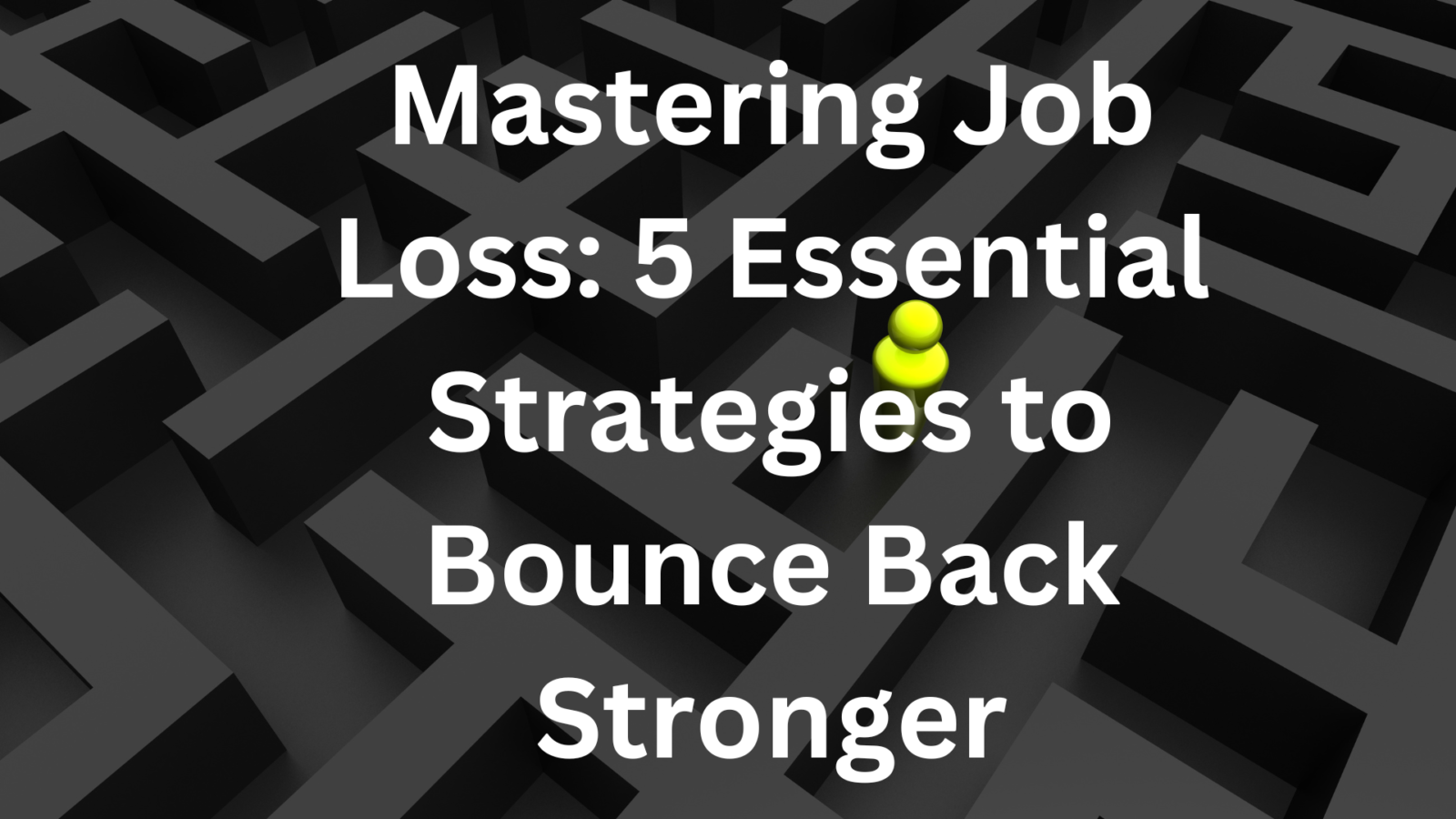In these times of economic uncertainty, the harsh reality of being downsized or fired is all too common. I’ve witnessed this firsthand, seeing how organizations, both profit-driven and governmental, have had to adjust their workforce due to financial constraints.
I do not wish to be downsized or fired on anyone because it places much pressure on that person, and some can handle pressure while others cannot, but should the pressure be so great that one results in drastic measures? I would say no because I firmly believe that tough times don’t last forever. There is always a light at the end of the tunnel, and when you are prepared for those stormy days, the blow is not as significant. Below are five proven strategies that will ensure you will land on your feet if you are ever faced with a job loss or setback. These strategies are good for preparing for a job loss and a good practice to live by.
Building a Safety Net: The security of having an emergency fund can be a game-changer when faced with job loss. I recall my uncle’s calm demeanor when he was laid off due to a worker’s strike. He was sitting back, enjoying a beer, and proudly declared that he had no worries because he was financially prepared for such situations.
When preparing for rainy days, experts would say to aim for 3-6 months of living expenses saved in a safe, easily accessible account; however, I would aim to save beyond six months. A nest egg of savings reduces financial stress and allows a focused job search without immediate pressure to take the first opening.
Seize Networking Opportunities: Don’t wait for a layoff to start expanding your network. Networking is a powerful tool because it’s not just about who you know, but who knows you. I remember a conference where the speaker asked, ‘Who is wearing your shirt?’ She further explained what person or people within your organization can speak positively on your behalf? The value of having someone who can advocate for you is immeasurable.
Networking is a marathon, and it could happen anywhere: at work, church, or the airport. You should also be prepared to network with colleagues, attend industry events, and strengthen relationships on professional platforms like LinkedIn. While networking, always be prepared to have an elevator pitch that communicates your value and confidence.
Even in your current job, it is essential that you network by being visible in the company, whether it is through infinity groups or volunteering, because you never know whom you might meet. It could be like the executive I met while at a conference and what he communicated to me. He said, “I will be a pulling guard (football jargon) and open up holes of opportunity for you.”
Embrace Continuous Learning: The job market is ever-changing. By investing in your skills through courses, certifications, or online learning platforms, you’re not just keeping up, you’re opening doors to new career opportunities. This proactive approach demonstrates initiative and keeps your skillset relevant. Remember, learning is a lifelong journey.
Take Stock and Strategize: A job loss can be an excellent time to reassess your career goals. Consider if your current field aligns with your long-term aspirations. Use this time to identify your strengths, interests, and desired work environment. This clarity will guide your job search and potentially lead to a more fulfilling career path. This also could be an opportunity to venture into your passion of becoming an entrepreneur. The sky is the limit and opportunities as to whether you go get a job or create a job.
Maintain a Positive Attitude: A job search can be discouraging, but negativity hinders progress. Focus on the positive aspects of your situation – the chance to explore new opportunities and potentially find a better fit. To maintain a positive attitude, I would exercise, meditate, or take up a hobby to maintain your stress level. This can go a long way in having a clear mind to think and have a healthy outlook. Celebrate small wins and maintain a professional demeanor throughout the search process. This positive outlook will project confidence to potential employers.
To conclude, losing a job is not the end of the world because it very well could be the start of a new beginning. It could be your time to really shine in life. I am a firm believer that when one door closes, another opens, but what is key in this whole dynamic of what to do after losing a job is, you do not start this process after you lose your job, but rather before, during, and after a job is lost. This is a continuous process because what you are doing is making deposits in your life so when those stormy days come, you can weather the storms. So, get started today in making those deposits so when you lose that job or have a setback, you are winning because you can land back on your feet.

